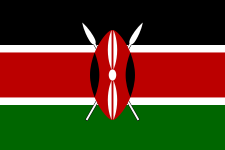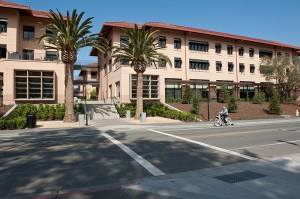 Chris Bradford, the co-founder of the African Leadership Academy, is a Siebel Scholar, who graduated from Stanford’s business school nine years ago. Last year, the ALA – arguably Bradford and Fred Swaniker’s most successful initiative to date – was the recipient of the Siebel Scholars Impact Award. The purpose of this $250,000 award is to recognise and drive forward the initiatives established by its scholars. Those who support the ALA, including Tunde Folawiyo, understand how much this money will help the academy and its students.
Chris Bradford, the co-founder of the African Leadership Academy, is a Siebel Scholar, who graduated from Stanford’s business school nine years ago. Last year, the ALA – arguably Bradford and Fred Swaniker’s most successful initiative to date – was the recipient of the Siebel Scholars Impact Award. The purpose of this $250,000 award is to recognise and drive forward the initiatives established by its scholars. Those who support the ALA, including Tunde Folawiyo, understand how much this money will help the academy and its students.
Although still relatively new, the ALA has already begun to have an enormously positive impact; its graduates have launched a number of projects which have started to bring about societal change. Using the entrepreneurial knowledge they have acquired during their time at the ALA, many of the students are now doing their utmost to eradicate poverty, hunger and conflict across the continent.
Speaking of the award, Bradford said that he was very honoured that the judges had selected the academy which he and Swaniker worked so hard to establish. He added that the ALA plays an incredibly important role in Africa’s future growth and development, as young people have to be given the opportunity to develop their talents, broaden their minds and learn the fundamentals of entrepreneurship, if they are to stand any chance of becoming tomorrow’s leaders. With guidance from its Global Advisory Board, upon which members including Tunde Folawiyo sit, the ALA will almost certainly play a crucial role in the development and progress which will occur in African nations over the coming decades.
The Impact Award was set up in 2011, in order to identify, acknowledge and accelerate the Siebel Scholar’s initiatives, many of which address some of the world’s most serious problems relating to energy, education, public health and poverty. As well as the financial prize, recipients like the ALA also gain invaluable support from the scholar community, which is made up of several hundred alumni and students from the world’s most preeminent computer science, bioengineering and business graduate schools.
The benefits of this collaboration between the Siebel Scholars and institutes such as the ALA have already been noted by companies like Sanergy, who have hired graduates of the academy to help with their sales and marketing projects in the Kenyan city of Nairobi. The founder of Sanergy, Lindsay Stradley, who is also a Siebal Scholar; she remarked that the ALA graduates who have joined her company have been ‘instrumental’ in the development of her organisation.
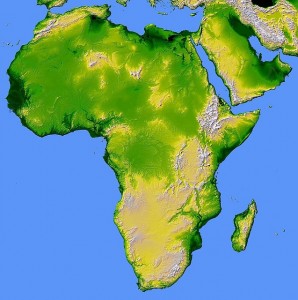
![By DFID - UK Department for International Development [CC-BY-SA-2.0 (http://creativecommons.org/licenses/by-sa/2.0)], via Wikimedia Commons Tunde Folawiyo](http://upload.wikimedia.org/wikipedia/commons/thumb/5/50/Pupil_at_Beboy_Deux_bush_school%2C_near_Paoua%2C_Central_African_Republic_%288380273392%29.jpg/512px-Pupil_at_Beboy_Deux_bush_school%2C_near_Paoua%2C_Central_African_Republic_%288380273392%29.jpg) ary donations to volunteer opportunities and the prospect of internships within partners’ companies, there are a host of ways for the public to contribute to the further success of today’s young African leaders. The African Leadership Academy and their network have raised millions of dollars to further promote the mission of the academy throughout the continent and beyond. It is with these outstanding donations that the academy will continue to serve the continent as a leading institution preparing African youth for a brighter tomorrow. Whether by recommending a student to apply to the programme or joining efforts with others to raise funds for tuition, the African Leadership welcomes all who wish to support its mission of encouraging tomorrow’s leaders.
ary donations to volunteer opportunities and the prospect of internships within partners’ companies, there are a host of ways for the public to contribute to the further success of today’s young African leaders. The African Leadership Academy and their network have raised millions of dollars to further promote the mission of the academy throughout the continent and beyond. It is with these outstanding donations that the academy will continue to serve the continent as a leading institution preparing African youth for a brighter tomorrow. Whether by recommending a student to apply to the programme or joining efforts with others to raise funds for tuition, the African Leadership welcomes all who wish to support its mission of encouraging tomorrow’s leaders.![By Erik (HASH) Hersman from Orlando (William Kamkwamba) [CC-BY-2.0 (http://creativecommons.org/licenses/by/2.0)], via Wikimedia Commons Tunde Folawiyo](http://upload.wikimedia.org/wikipedia/commons/thumb/2/29/William_Kamkwamba_at_TED_in_2007.jpg/512px-William_Kamkwamba_at_TED_in_2007.jpg) ing programmes and businesses which will turn Africa into a peaceful and economically stable continent.
ing programmes and businesses which will turn Africa into a peaceful and economically stable continent.

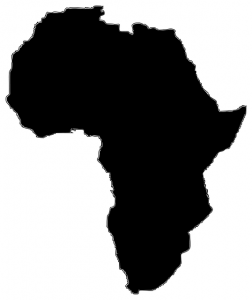
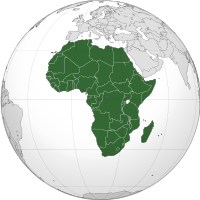
![By DrRandomFactor (Own work) [CC-BY-SA-3.0 (http://creativecommons.org/licenses/by-sa/3.0)], via Wikimedia Commons Tunde Folawiyo](http://upload.wikimedia.org/wikipedia/commons/thumb/0/06/Flag_map_of_Colonial_Africa_%281939%29.png/512px-Flag_map_of_Colonial_Africa_%281939%29.png) After giving the matter a great deal of thought, he concluded that there was one crucial element which almost every African country was lacking; strong leadership. Knowing that an attempt to reform the current leaders would be an exercise in futility, he decided to focus instead on the younger generation, realising that the solution was to create a school which was specifically designed to nurture the most brilliant young minds of Africa, and to give them the tools and the education they needed to become tomorrow’s leaders.
After giving the matter a great deal of thought, he concluded that there was one crucial element which almost every African country was lacking; strong leadership. Knowing that an attempt to reform the current leaders would be an exercise in futility, he decided to focus instead on the younger generation, realising that the solution was to create a school which was specifically designed to nurture the most brilliant young minds of Africa, and to give them the tools and the education they needed to become tomorrow’s leaders.